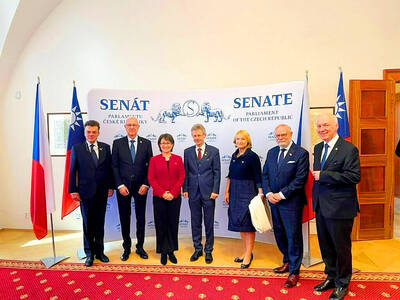Some 1,400 Palestinians crossed into Gaza on Friday after Israel reopened a border terminal with Egypt, ending a three-week closure that had left hundreds of stranded travelers sleeping on the ground near the desert post.
The Rafah terminal is the only crossing for Palestinian travelers in and out of Gaza, and the closure came during the peak summer season.
Also, a top aide to Israeli Prime Minister Ariel Sharon warned of increased threats against Sharon.
"There has been a sharp increase in the level of threats against the prime minister," said Dov Weisglass, Sharon's bureau chief, in an interview with Israel's Channel 2 TV -- excerpts of which were aired on Friday.
Weisglass did not name the source of the threats, but in recent weeks security officials have warned that Sharon could be a target of right-wing extremists who oppose his plan to withdraw from the Gaza Strip and four West Bank settlements.
In 1995 Prime Minister Yitzhak Rabin was assassinated by a Jewish extremist opposed to a land-for-peace deal with the Palestinians. Palestinian militants have also vowed to strike at Israeli leaders to avenge Israel's killing of militant leaders.
Israel shut down the Rafah terminal July 18, saying it had intelligence information that Palestinian militants had dug a tunnel under the crossing or a nearby Israeli army outpost and were planning to blow it up. Militants have dug tunnels in the past to carry out attacks, including a deadly explosion at a Gaza army base this year.
Soldiers searched the area during the closure, but the military refused to say on Friday if anything suspicious was found.
During the closure, some 1,500 Palestinians waited near the terminal, while some 3,000 others stayed with relatives in Egypt or at hotels, said Salim Abu Safia, the Palestinian director of the Gaza crossing.
According to Abu Safia, 1,400 people managed to cross Friday.
For many, the crossing was an emotional moment, bringing an end to an ordeal that saw them dependent on aid from charity organizations. Earlier in the week, Egypt warned of an impending humanitarian crisis.
With tears streaming down her face, Nihad Abu Jazar, 22, a third-year student at Cairo University, ran into the arms of her waiting relatives.
The travelers had spent the first week sleeping on the ground, Abu Jazar said. Later, Egyptians authorities and aid groups brought basic supplies, including mattresses. But there were not enough toilets, and people were forced to stand for hours waiting to use the bathroom.
She said she had thought about returning to Cairo. "But every time I convinced myself that they might open any time and to be honest I don't have enough money. My father is unemployed," Abu Jazar said.
Israel had offered to open an alternate crossing, but Egypt and the Palestinian Authority rejected the proposal as a violation of existing border agreements.
The closure disrupted the travel plans of thousands of Palestinians. TheWeb site of the Israeli daily Haaretz said the crossing was reopened under US pressure.
Abu Safia said two more days were needed to allow all those who had been stranded to cross back.

Two US House of Representatives committees yesterday condemned China’s attempt to orchestrate a crash involving Vice President Hsiao Bi-khim’s (蕭美琴) car when she visited the Czech Republic last year as vice president-elect. Czech local media in March last year reported that a Chinese diplomat had run a red light while following Hsiao’s car from the airport, and Czech intelligence last week told local media that Chinese diplomats and agents had also planned to stage a demonstrative car collision. Hsiao on Saturday shared a Reuters news report on the incident through her account on social media platform X and wrote: “I

SHIFT PRIORITIES: The US should first help Taiwan respond to actions China is already taking, instead of focusing too heavily on deterring a large-scale invasion, an expert said US Air Force leaders on Thursday voiced concerns about the Chinese People’s Liberation Army’s (PLA) missile capabilities and its development of a “kill web,” and said that the US Department of Defense’s budget request for next year prioritizes bolstering defenses in the Indo-Pacific region due to the increasing threat posed by China. US experts said that a full-scale Chinese invasion of Taiwan is risky and unlikely, with Beijing more likely to pursue coercive tactics such as political warfare or blockades to achieve its goals. Senior air force and US Space Force leaders, including US Secretary of the Air Force Troy Meink and

‘BUILDING PARTNERSHIPS’: The US military’s aim is to continue to make any potential Chinese invasion more difficult than it already is, US General Ronald Clark said The likelihood of China invading Taiwan without contest is “very, very small” because the Taiwan Strait is under constant surveillance by multiple countries, a US general has said. General Ronald Clark, commanding officer of US Army Pacific (USARPAC), the US Army’s largest service component command, made the remarks during a dialogue hosted on Friday by Washington-based think tank the Center for Strategic and International Studies. Asked by the event host what the Chinese military has learned from its US counterpart over the years, Clark said that the first lesson is that the skill and will of US service members are “unmatched.” The second

Czech officials have confirmed that Chinese agents surveilled Vice President Hsiao Bi-khim (蕭美琴) during her visit to Prague in March 2024 and planned a collision with her car as part of an “unprecedented” provocation by Beijing in Europe. Czech Military Intelligence learned that their Chinese counterparts attempted to create conditions to carry out a demonstrative incident involving Hsiao, which “did not go beyond the preparation stage,” agency director Petr Bartovsky told Czech Radio in a report yesterday. In addition, a Chinese diplomat ran a red light to maintain surveillance of the Taiwanese